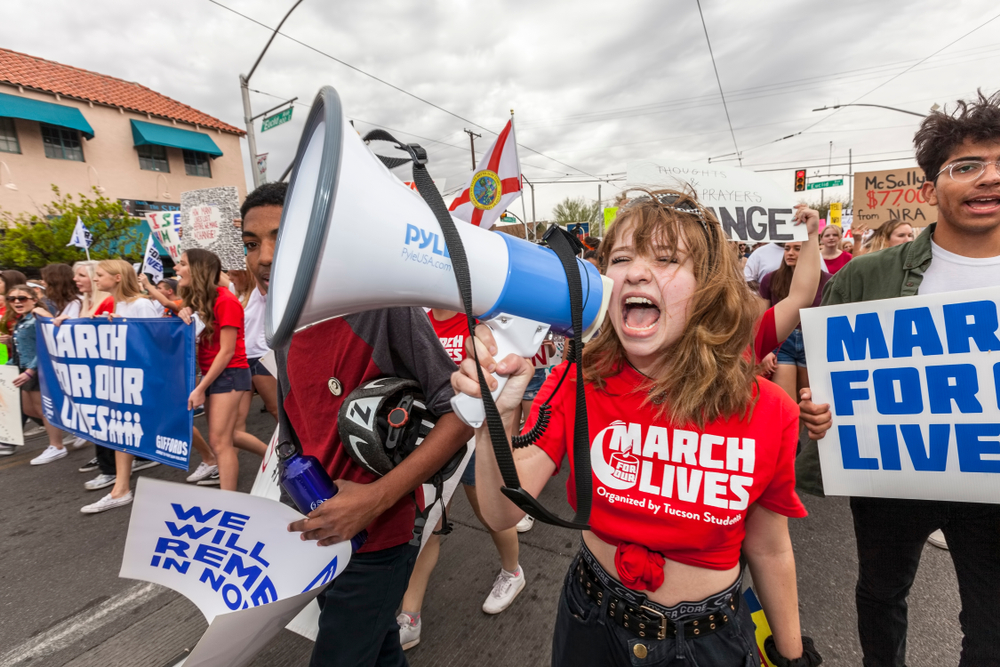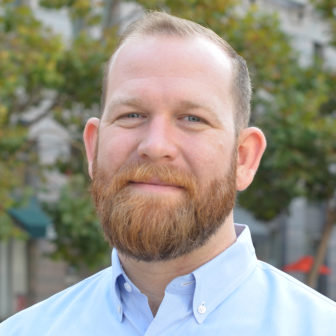
CREATISTA/Shutterstock
.
I love working with kids and supporting the people who work with kids. If you are reading this, you probably do too. I’ve devoted my career to serving children and youth, and I’ve never really questioned the direction of my career — until recently. Over just the last few years I have experienced a slow-moving crisis of faith, and I suspect I am not alone. I think our work makes a difference for each of the kids we serve, but am I making the world a better place?

Daren Howard
As I wrote this the government was shut down, children have been separated from their families at the border for seeking asylum, the gap between the haves and the have-nots is ever widening, people debate whose lives matter and the image of white supremacists marching through the streets of American cities will be forever burned into my brain.
I don’t know about you, but the current political climate leaves me feeling powerless. What are we to do? The fact is none of us can do something about all these issues. Even if one has some privilege, control or influence over one or more of these issues, we do not exercise enough influence to solve each of the complex, multifaceted challenges in our society. Progress is hard won and requires a multigenerational movement to make even incremental change, but I believe change is absolutely possible.
Youth Organizing in After-school Programs
Some of the most compelling and effective activism today is coming from empowered and supported youth. Whatever your political persuasion, this emerging generation of activists needs your support to exercise their agency. I may be biased, but I think high-quality after-school programs are especially well-positioned to provide a space for this sort of empowerment. As educators and social sector leaders, I believe it is our responsibility to get out of the way and get behind this generation.
I’m clearly not the only one who thinks this. There are a number of impressive and effective models for how to support youth organizing and activism. Here are just a few examples:
- Oakland Kids First: The mission of Oakland Kids First (OKF) is to increase youth voice, leadership and power and create engaging and equitable public schools where all students learn and achieve. Founded in 1996 by a multiracial coalition of youth-serving agencies, OKF provides hundreds of youth with the skills and opportunities to advance safe and caring school cultures, lift their needs and priorities and improve equity and academic outcomes for low-income youth of color through youth leadership development, peer counseling and youth organizing and advocacy.
- Californians for Justice: Californians for Justice (CFJ) is advancing youth voices in democracy through voter engagement, leadership development and school governance to build a more fair and racially just future. As one CFJ youth leader explained, “Even though I am not allowed to vote in elections because of my age, getting out the vote is the most important thing I can do to raise my voice as a young person of color. Getting out the vote is bigger than anyone can imagine. The more we get out the vote, the more we are heard and seen.”
- RYSE Center: Based in Richmond, Calif., RYSE creates safe spaces grounded in social justice for young people to love, learn, educate, heal and transform lives and communities. Youth interns participate in leadership training, explore issues in their communities, develop community organizing skills and coordinate events to educate their peers. A diverse coalition including RYSE, other community-based organizations, labor unions and political leaders came together to pass the Richmond Kids First ballot measures establishing the Richmond Fund for Children and Youth to more effectively invest in local kids.
Selecting a Cause is Inherently Privileged
I find these programs inspiring, but let me take a moment to acknowledge my privilege. In college I began to lean toward a career in the nonprofit social sector. I asked a professor and mentor how to choose a cause when so many were so compelling. He encouraged me to focus on the one issue that was most meaningful and that I had skills and experience to contribute to. He also called out the fact that I could choose a cause as inherently privileged.
The most vulnerable people fight for justice because they or their people are experiencing injustice. Farm workers united because they were vulnerable alone but powerful together. The abolition movement, the modern civil rights era and the current civil rights movements all had or have privileged allies who choose to support these causes because doing so is just, but these causes should be led by people at the center of the issue.
Allies may need to facilitate access to levers of power, but our aim should be to empower others. In youth work, all adults should consider themselves allies to youth. The young people we serve will be forced to fight for the cause closest to themselves because they are fighting for survival, for their community and for a future in which they no longer have to wage such battles. There are many issues I find compelling, but my career has given me access to the education system, so I am seeking to share that access with young people.
We must use whatever privilege we have to empower young people to expand their sphere of influence. We can do this in age-appropriate ways. Some young people might know intuitively when something isn’t right, but they might not know what the solution is or how to achieve it. After-school programs can provide youth with training to understand systems of injustice and oppression or research-validated solutions.
How to Get Started
I would encourage you to start small. If you don’t already have one, establish a youth advisory board in your organization or at your school. Already have that? Consider getting your youth engaged in the campaign to save after-school program funding. Save After School is working on increasing public investment in after-school programming through the After School Education & Safety Program rate in California, 21st Century Community Learning Center funding at the federal level and even ensuring tax revenue from the sale of cannabis goes to after-school programs.
Once you have gathered students and selected an area to focus on (whether that is a particular issue or a geographic area), support students with structured activities that build skills. One strategy for this is Youth-Led Participatory Action Research (YPAR). The YPAR hub is a great resource for lesson plans, videos and examples. You might also consider leveraging human-centered design thinking or gamestorming to plan activities and help youth make decisions by guiding the process, but not the outcome.
When we focus on process and remain open to outcome, our youth will surprise us. Be ready for that. None of us can save the world alone, but youth development professionals are uniquely positioned to support the pursuit of justice among the youth we serve. It is our job to help them. So get behind them, or get out of the way.
Daren Howard is the director of business development at Partnership for Children and Youth, an advocacy and capacity-building organization based in Oakland, Calif. He has a background in youth development and nonprofit management and serves a wide range of clients as a consultant in the areas of management and leadership, learning and development, after-school and summer programs, coalition building and organizational effectiveness.



























